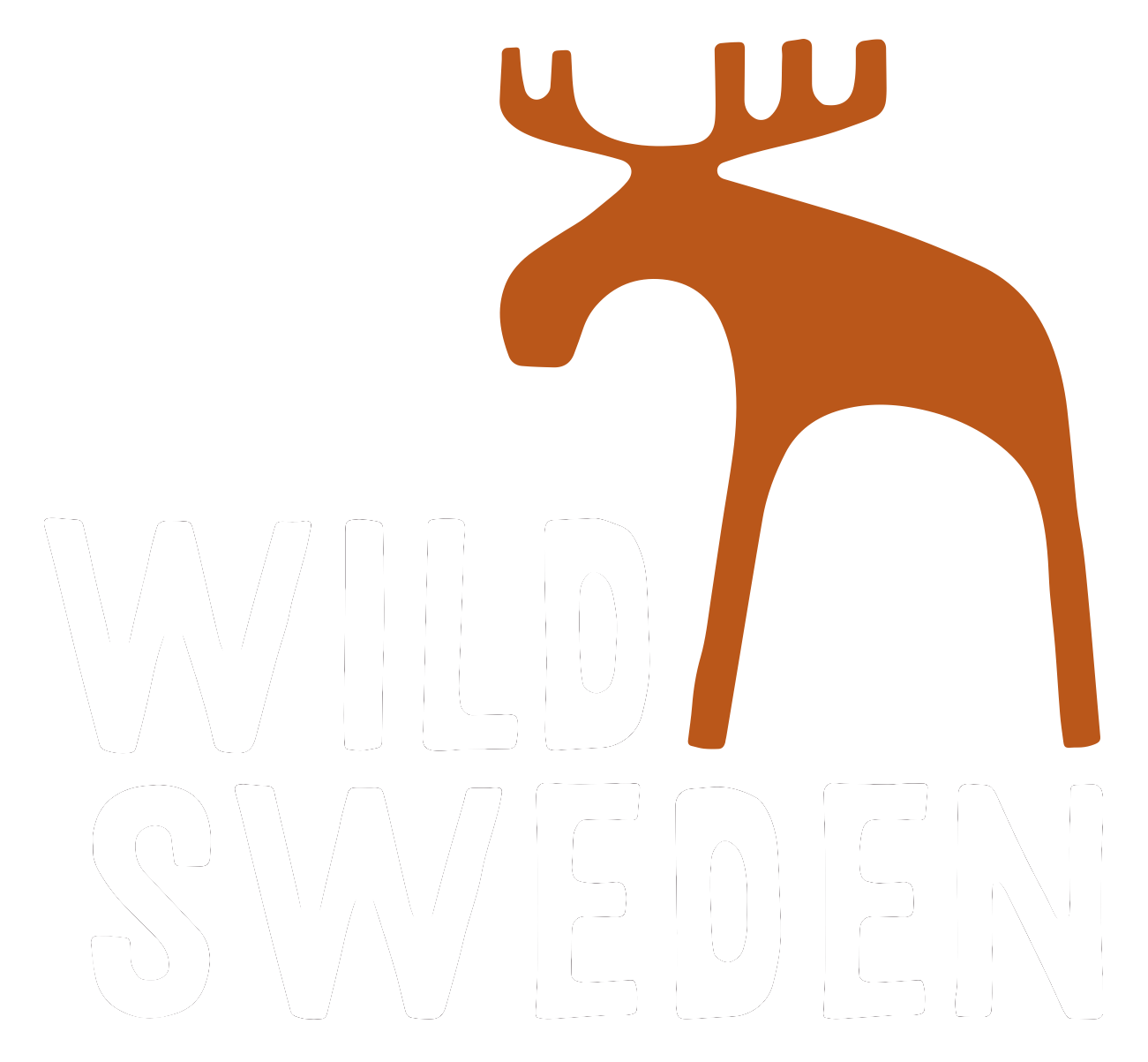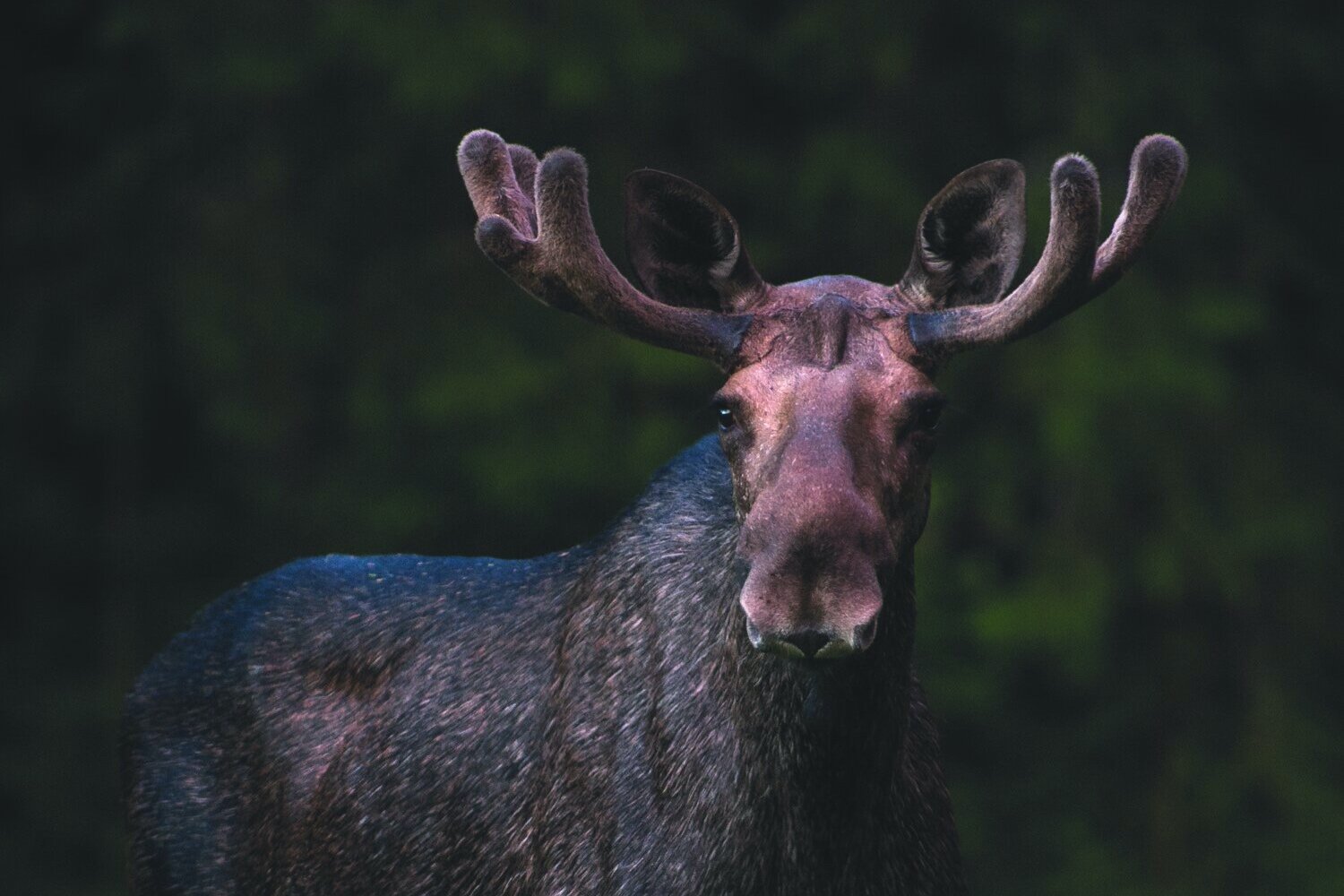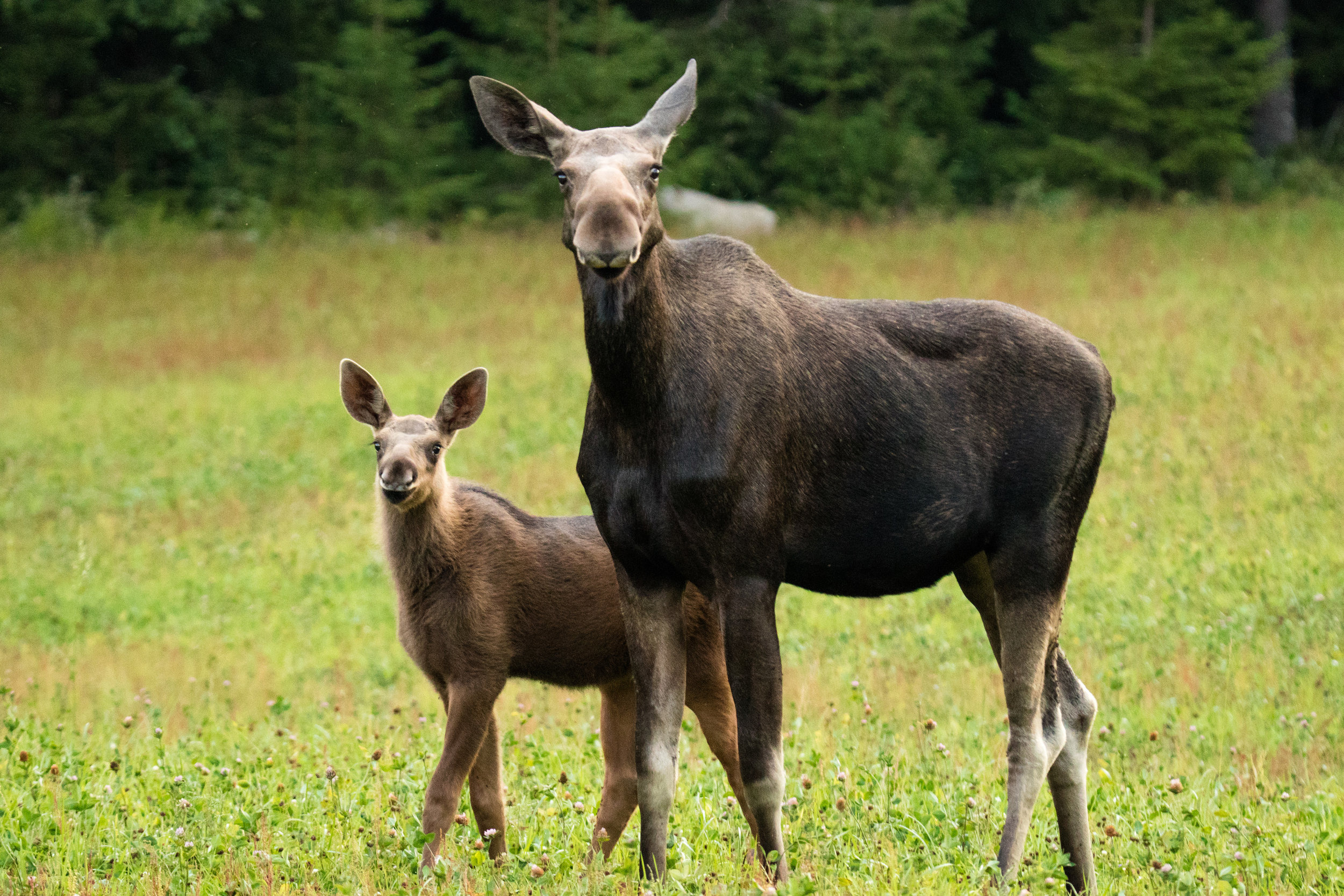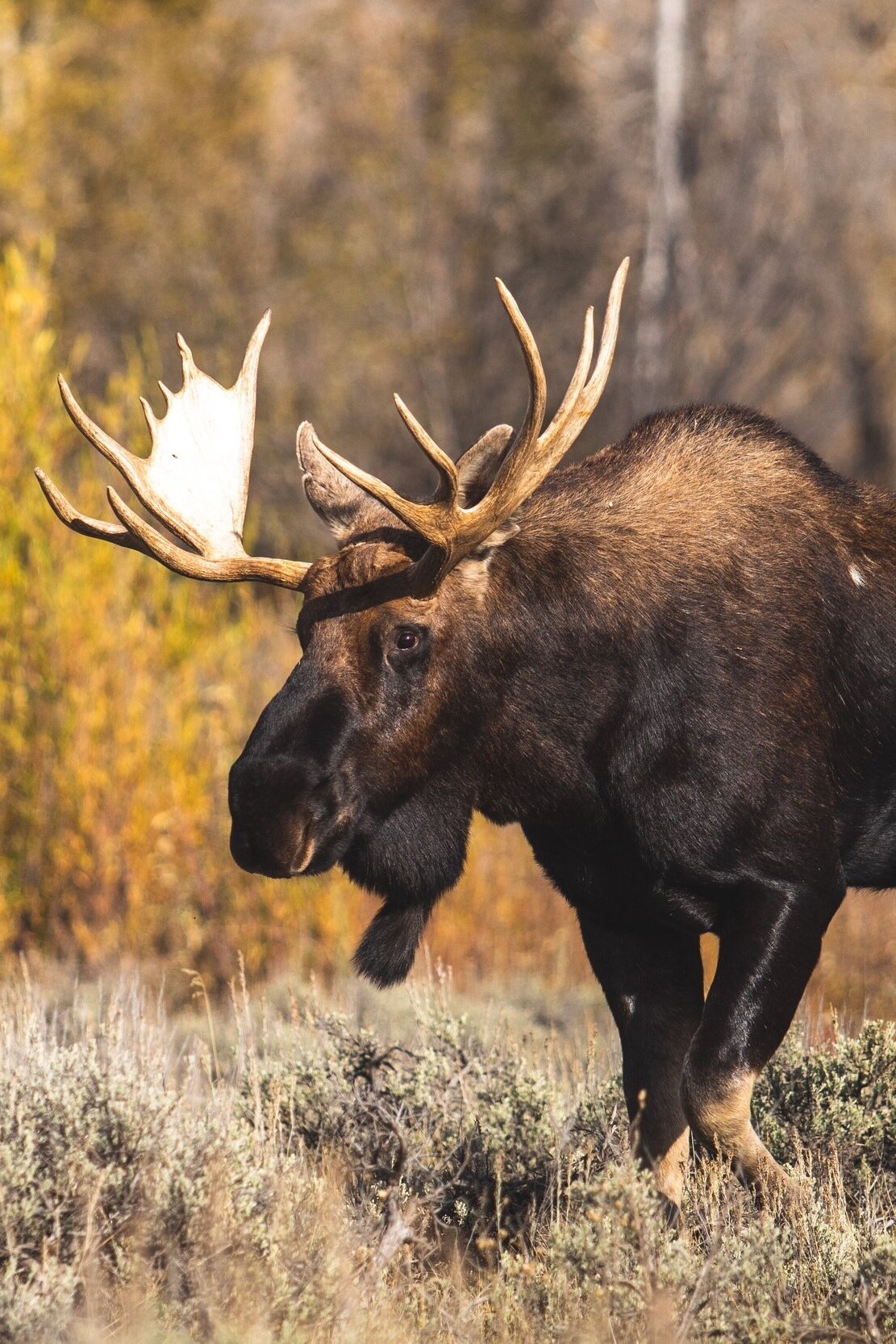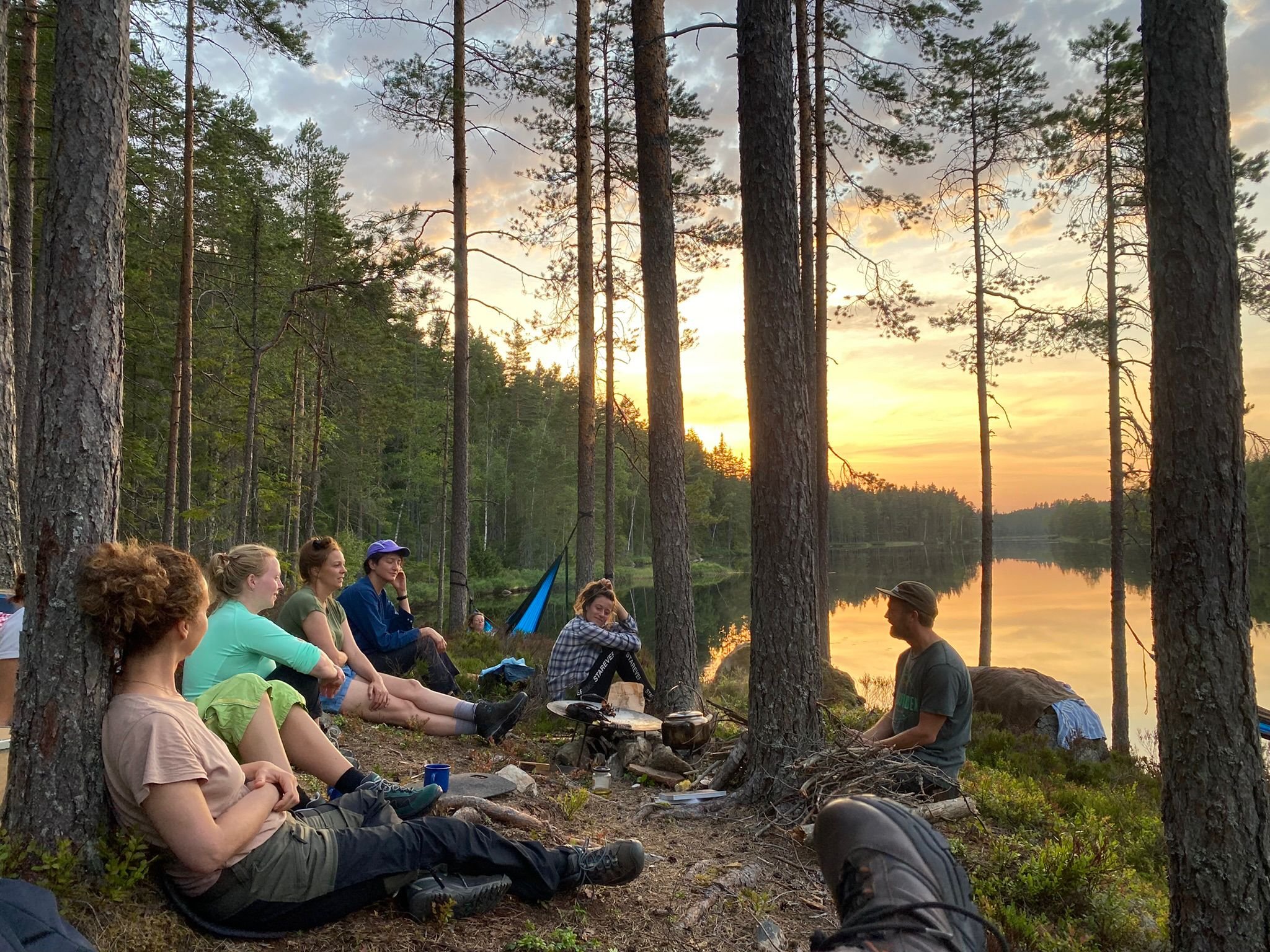Facts about Moose in Sweden
This is a page with facts about Moose in Sweden.
Did you know that there are more Moose in Sweden per square kilometer than any other country in the World?
And did you know that nearly 90,000 moose are shot each year during the hunting season? There are 400,000 moose in Sweden before the hunting season, 90,000 are hunted so that about 300,000 remain during winter, and some 100,000 are born each spring. However, these figures are not exact and the fact is that the population has decreased a lot since the 1980’s when the population was larger than ever.
Moose cow and calf born earlier the same year. Photo: Simon Green
facts about Moose in Sweden
Scientific name: Alces alces
How large is a moose?
Moose is the largest member of the deer family. They reach 170 – 210 cm height at shoulder. Bulls weigh weigh 380 – 850 kg and cows weigh 200 – 360 kg.
How long do they live?
Moose may live up to 25 years but because of the intensive hunting few moose survive to become older than 10 years. Since more bulls are hunted only 5-10% of the bulls reach the age of 5 years, but cows often become 10 or even 20 years old.
What does a moose look like?
Dark brown body with long greyish white legs. Males are distinct with antlers. Antlers are shed each Winter and grow out again during the Summer season. It has a short and stubby hairy tail, long nose and long ears. Under the throat hangs a pendant of fur like a beard. These hooves also act as snowshoes to support the heavy animals in soft snow and in muddy or marshy ground.
What is a moose family?
Moose are solitary and do not live in families or herds. The calves follow the cow during one year. During the rut the bulls may come together to battle for mating supremacy. After mating, the two sexes go their separate ways. Though they may occasionally feed in the same grounds, they tend to ignore each other.
How many moose are there in Sweden?
The Summer population of Moose in Sweden is estimated to be 300,000–400,000 individuals. Around 100,000 are shot in the annual hunt during Autumn, and 100,000 calves are born each Spring. It can be found all over Sweden except on the island of Gotland. Sweden has the densest population of Moose in the World. Although hundreds of thousands of Moose inhabit Sweden it can still be difficult to see a Moose in the wild. Some of the most densely populated ares with Moose in Sweden is Bergslagen and the rest of Central Sweden.
Breeding
The annual rut/mating season occurs during the end of September and beginning of October. During this period the bulls are active searching for cows and bulls typically mate with several cows.
The Moose offspring is called a calf. After a gestation period of 8 months (235 days) the cow gives birth to one or two calves, sometimes even three. The calf weighs 8-15 kilograms at birth and gain 1,5 kilograms per day during the first few months. The reddish fur changes into brown after about 2,5 months. The calf eat milk from the cow during 7-8 months. Young moose stay with their mothers until the following mating season when they are usually pushed away by the cow to give room for the new calves.
What does moose eat?
Herbivore. Their diet consists of both terrestrial and aquatic vegetation. During Summer when food is plentiful they typically feed on herbs and leaves. During Winter they survive on shrubs and buds from Pine trees.
What are their natural predators?
The most common moose predators are humans (hunting + traffic), wolves and bears.
What is the difference between Moose and Elk?
Moose and Eurasian Elk, also known as European Elk, are actually different names for the same species of deer, Alces alces. Therefore, there is no difference between moose and Eurasian elk.
However, it's worth noting that in North America, the term "elk" typically refers to a different species, Cervus canadensis, commonly known as wapiti. This can create confusion, as "elk" in North America refers to a different animal than "elk" in Europe and Asia.
So while Moose and Eurasian Elk are technically the same species, their geographical locations and differing regional names can cause confusion. But remember that the Elk in Europe is not the same as Elk in North America.
American Wapiti, also called American Elk. This is not a moose.
American Moose, which is the same species as the European Elk, just two different names.
European Elk, also called Eurasian Moose is the same species as the American Moose. But it is not the same species as the American Elk.
